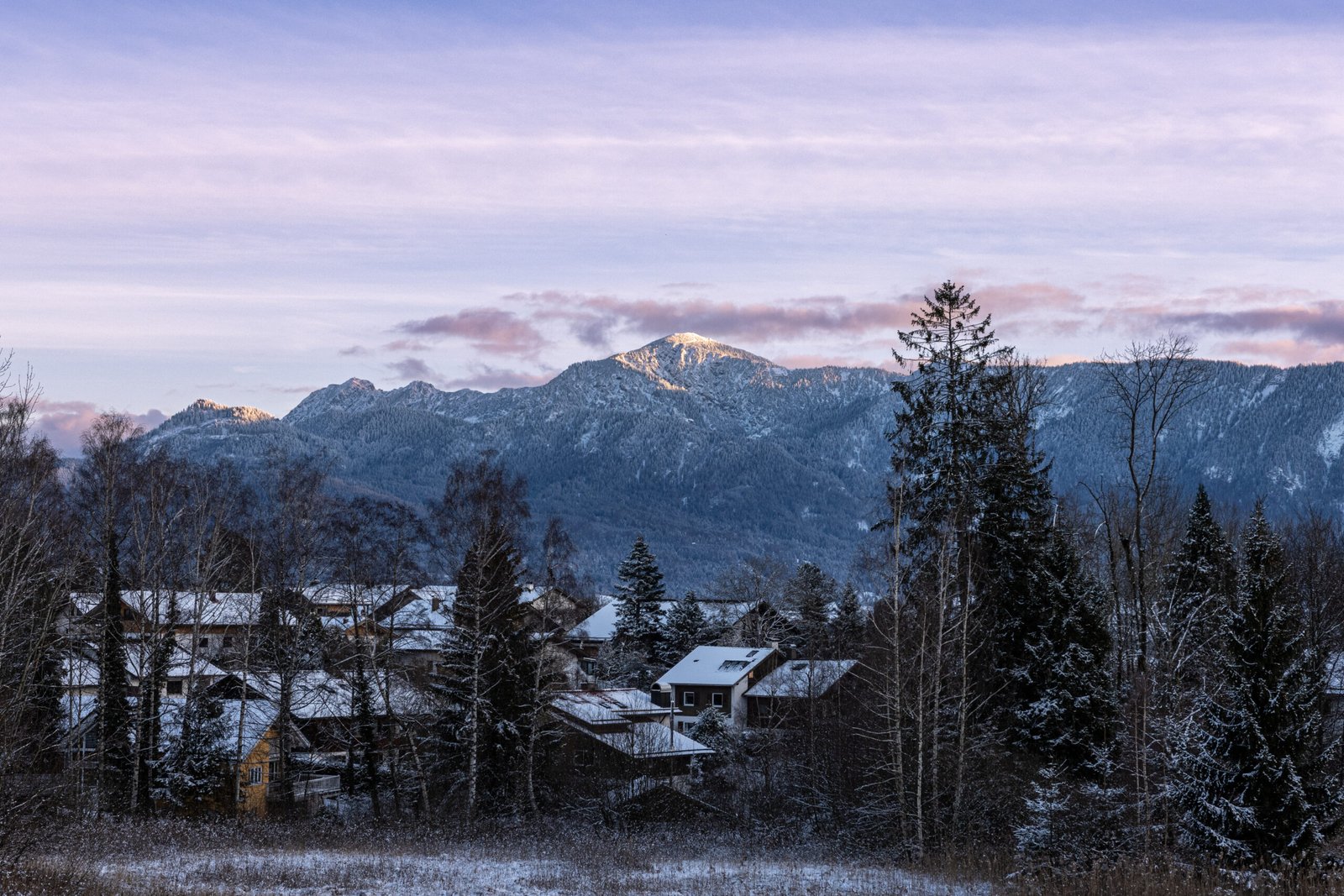
Bethel, Alaska
Imagine a place where the untouched beauty of nature meets the warm embrace of a tight-knit community. That place is Bethel, Alaska. Nestled among the snow-capped mountains and picturesque landscapes, this small city in the Last Frontier offers a unique glimpse into a life shaped by its Arctic surroundings. From its rich indigenous culture to its stunning wildlife, Bethel captures the essence of what it means to experience Alaska to its fullest. Join us as we uncover the hidden gems and untold stories of this captivating city, where every step you take feels like a journey into the heart of the wild.

Location
Geographical coordinates
Bethel, Alaska is located at approximately 60.7922° N latitude and 161.7558° W longitude. This places the city in western Alaska, near the confluence of the Kuskokwim River and the Bering Sea.
Neighboring cities
Bethel is surrounded by vast stretches of wilderness, with no road access to other cities in Alaska or the contiguous United States. However, there are several other small communities in the region. Neighboring cities and villages include Napaskiak, Napakiak, Kwethluk, Akiachak, and Nunapitchuk. Some of these neighboring communities can be reached by small aircraft or boat, playing a crucial role in maintaining connections between the residents.
History
Native American settlement
The region around Bethel has a long history of Native American settlement. The Yup’ik people have inhabited this area for thousands of years, relying on the rich natural resources of the area for their subsistence. The river and surrounding tundra provided food, clothing, and shelter for the Native Alaskans, allowing them to thrive in harmony with the local ecosystem.
Russian exploration
In the late 18th century, Russian explorers arrived in the area and made contact with the Yup’ik people. Russian fur traders established trade relationships with the Native Alaskans, exchanging goods and introducing new technologies. This contact with the outside world brought new tools, materials, and ideas to the indigenous communities.
Establishment of the Moravian Church
In the 1880s, Moravian missionaries from Germany arrived in Bethel and established a mission. The Moravians played a significant role in shaping the culture and identity of the community. They brought Christianity to the region, establishing schools and healthcare facilities, and promoting education and literacy among the local population.
Gold rush era
The discovery of gold in the nearby Aniakchak River in 1905 sparked a gold rush in the region. Prospectors flocked to Bethel in search of riches, hoping to strike it rich in the gold fields. Although the gold rush was short-lived, it brought significant economic activity to the area, leading to the establishment of businesses and services in Bethel.
Modern development
Today, Bethel is a thriving community that serves as a hub for the surrounding villages. The city has a modern infrastructure, with schools, healthcare facilities, and government services. It continues to play a vital role in supporting the region’s economy, serving as a center for transportation, commerce, and education.
Demographics
Population
As of the latest census, Bethel has a population of approximately 6,400 residents. The population has been growing steadily, driven by a combination of natural increase and migration from other communities in the region. The city’s population is diverse, comprising both Native Alaskans and individuals from other ethnic backgrounds.
Ethnicity
The majority of the population in Bethel is Native Alaskan, with a significant Yup’ik presence. The Yup’ik people have a strong cultural and historical connection to the region, and their traditions and way of life continue to be an integral part of the community. Additionally, Bethel is home to individuals from various ethnic backgrounds, reflecting the diversity of Alaska as a whole.
Language
The primary language spoken in Bethel is English, but Yup’ik is also widely spoken. The Yup’ik language is an Eskimo-Aleut language and serves as an important cultural link for the Native Alaskan population. Efforts have been made to preserve and promote Yup’ik language and culture through education and community programs.
Culture
Native Alaskan traditions
The Native Alaskan culture is central to the identity of Bethel. The Yup’ik people have a rich cultural heritage that encompasses storytelling, music, art, and traditional practices. Hunting, fishing, and gathering of wild foods remain important aspects of the Yup’ik way of life. Traditional dances and ceremonies are also celebrated, providing a way to honor their ancestors and pass down their traditions to future generations.
Moravian Church influence
The Moravian Church has had a profound influence on the cultural fabric of Bethel. The church’s teachings and values have become intertwined with Yup’ik traditions, creating a unique blend of religious and cultural practices. Many residents participate in church activities, and the church plays a vital role in providing support and services to the community.
Festivals and celebrations
The people of Bethel celebrate various festivals and events throughout the year. The Camai Dance Festival, held annually in March, brings together dancers from across Alaska to showcase their traditional dances. The Fourth of July is another important celebration, marked by parades, fireworks, and community gatherings. These festivals provide an opportunity for residents to come together, celebrate their culture, and strengthen community bonds.

Economy
Subsistence activities
Subsistence activities, such as hunting, fishing, and gathering, play a significant role in the local economy of Bethel. The region’s abundance of fish, game, and wild plants provides a sustainable food source for many residents. Traditional subsistence activities not only provide food but also contribute to the cultural identity and well-being of the community.
Government services
As the largest community in the region, Bethel serves as a hub for government services. It is home to various government offices, including the city government, regional offices, and healthcare facilities. These services play a crucial role in providing essential infrastructure, education, and healthcare to the residents of Bethel and the surrounding villages.
Education sector
Bethel has a robust education sector, offering educational opportunities from preschool to high school. The Lower Kuskokwim School District operates several schools in the area, providing quality education to students from Bethel and neighboring communities. Efforts are made to incorporate Native Alaskan culture and language into the curriculum, ensuring that students have a well-rounded education that reflects their heritage.
Healthcare sector
Bethel has a well-developed healthcare sector that serves the medical needs of the community. The Yukon-Kuskokwim Health Corporation operates a hospital and various clinics in the region, providing a range of healthcare services. These facilities ensure that residents have access to essential medical care, including emergency services, primary care, and specialized treatments.
Transportation
Transportation in Bethel is primarily reliant on air, river, and winter trails. The Bethel Airport serves as a vital transportation hub, connecting the community with other parts of Alaska and the contiguous United States. The Kuskokwim River provides an important transportation route during the summer months, allowing for the movement of goods and people by boat. In the winter, snowmobiles and dog sleds travel along the frozen river and trails, providing essential transportation for the residents.
Education
Public schools
Bethel has a comprehensive public school system operated by the Lower Kuskokwim School District. The district provides education from preschool through high school, with multiple schools serving the community and neighboring villages. The schools offer a range of academic and extracurricular programs, aiming to provide students with a well-rounded education.
Higher education
While Bethel does not have a university or college within its boundaries, residents have access to higher education opportunities through distance learning programs and satellite campuses. The University of Alaska Fairbanks offers courses and degree programs that can be accessed remotely, allowing individuals to pursue higher education without leaving their community.

Healthcare
Local healthcare facilities
Bethel has a hospital and various healthcare facilities operated by the Yukon-Kuskokwim Health Corporation. The Yukon-Kuskokwim Delta Regional Hospital provides a range of medical services, including emergency care, surgical procedures, and maternity services. Clinics located throughout the area offer primary care, specialty care, and preventive services to ensure the health and well-being of the community.
Health challenges
Like many remote communities, Bethel faces unique health challenges. Geographic isolation, harsh climate conditions, and limited healthcare resources can pose difficulties in accessing timely and specialized care. Additionally, the prevalence of certain health conditions, such as obesity and substance abuse, presents ongoing challenges that require targeted interventions and community support.
Efforts to improve healthcare
Efforts have been made to improve healthcare in Bethel and the surrounding region. Collaborative initiatives involving the local government, healthcare providers, and community organizations aim to address the health disparities and improve access to quality healthcare services. These efforts include increasing the availability of healthcare facilities, expanding telemedicine programs, and promoting preventive care and education.
Transportation
Air transportation
Air transportation is the primary mode of travel in and out of Bethel due to its remote location. The Bethel Airport serves as a vital transportation hub, providing regular flights to other parts of Alaska and connecting the community with the rest of the world. Several airlines operate scheduled flights, ensuring that residents have access to essential services and goods.
River transportation
During the summer months, the Kuskokwim River becomes an essential transportation route for the residents of Bethel and neighboring communities. Boats and barges traverse the river, transporting people, goods, and supplies between different villages along its course. This mode of transportation is crucial for maintaining connectivity and supporting subsistence activities in the region.
Winter trails
In the winter, when the river freezes over, residents rely on winter trails for transportation. Snowmobiles and dog sleds travel along the frozen river and designated trails, providing access to remote areas and connecting communities. These trails are essential for subsistence activities, emergency transport, and maintaining social connections between communities during the winter months.
Attractions
Kuskokwim River
The Kuskokwim River is one of the main attractions in Bethel and the surrounding region. This mighty river runs through the heart of Alaska and offers breathtaking views of the pristine wilderness. It is a vital lifeline for the community, providing transportation routes, recreational opportunities, and access to the abundance of fish and wildlife that inhabit its waters.
Tundra terrain
The tundra terrain surrounding Bethel is another prominent feature of the area. The vast open spaces and unique landscape offer opportunities for outdoor activities and exploration. Hiking, birdwatching, and wildlife spotting are popular pastimes, allowing visitors and residents to immerse themselves in the beauty and tranquility of the Alaskan wilderness.
Cultural centers
Bethel is home to cultural centers that celebrate and preserve the rich heritage of the region. These centers offer exhibits, workshops, and educational programs that showcase the art, history, and traditions of the Native Alaskan communities. They provide an opportunity for visitors to learn about the Yup’ik culture and gain a deeper understanding of the local way of life.
Notable People
Famous residents and natives
Bethel has been home to several notable individuals who have made significant contributions in various fields. These include community leaders, artists, athletes, and cultural ambassadors. Their achievements and dedication to their craft have helped shape the community and put Bethel on the map. Their success serves as an inspiration to future generations and highlights the potential that can be found in even the most remote of places.
